Gather round me, people, and a story I will tell
About a brave young Indian you should remember well
From the tribe of Pima Indians, a proud and a peaceful band,
They farmed the Phoenix valley in Arizona land.
Down their ditches for a thousand years the sparkling water rushed,
Till the white man stole their water rights and the running water hushed.
Now Ira's folks were hungry, and their farms grew crops of weeds.
But when war came, he volunteered and forgot the white man's greed.
Call him drunken Ira Hayes --
He won't answer anymore,
Not the whiskey-drinking Indian
Or the Marine who went to war.
Yes, call him drunken Ira Hayes --
He won't answer anymore,
Not the whiskey-drinking Indian
Or the Marine who went to war.
They started up Iwo Jima hill, two hundred and fifty men,
But only twenty-seven lived to walk back down that hill again.
And when the fight was over and Old Glory raised
One of the men who held it high was the Indian, Ira Hayes.
Call him drunken Ira Hayes --
He won't answer anymore,
Not the whiskey-drinking Indian
Or the Marine who went to war.
Call him drunken Ira Hayes --
He won't answer anymore,
Not the whiskey-drinking Indian
Or the Marine who went to war.
Now, Ira returned a hero, celebrated throughout the land
He was wined and speeched and honored, everybody shook his hand.
But he was just a Pima Indian -- no money, no crops, no chance --
And at home nobody cared what Ira'd done, and when do the Indians dance?
Call him drunken Ira Hayes --
He won't answer anymore,
Not the whiskey-drinking Indian
Or the Marine who went to war.
Call him drunken Ira Hayes --
He won't answer anymore,
Not the whiskey-drinking Indian
Or the Marine who went to war.
Then Ira started drinking hard, jail was often his home.
They let him raise the flag there and lower it like you'd throw a dog a bone.
He died drunk early one morning, alone in the land he'd fought to save.
Two inches of water in a lonely ditch was the grave for Ira Hayes.
Call him drunken Ira Hayes --
He won't answer anymore,
Not the whiskey-drinking Indian
Or the Marine who went to war.
Call him drunken Ira Hayes --
He won't answer anymore,
Not the whiskey-drinking Indian
Or the Marine who went to war.
Yes, call him drunken Ira Hayes,
But his land is still as dry,
And his ghost is lying thirsty
In the ditch where Ira died.
Call him drunken Ira Hayes --
He won't answer anymore,
Not the whiskey-drinking Indian
Or the Marine who went to war.
About a brave young Indian you should remember well
From the tribe of Pima Indians, a proud and a peaceful band,
They farmed the Phoenix valley in Arizona land.
Down their ditches for a thousand years the sparkling water rushed,
Till the white man stole their water rights and the running water hushed.
Now Ira's folks were hungry, and their farms grew crops of weeds.
But when war came, he volunteered and forgot the white man's greed.
Call him drunken Ira Hayes --
He won't answer anymore,
Not the whiskey-drinking Indian
Or the Marine who went to war.
Yes, call him drunken Ira Hayes --
He won't answer anymore,
Not the whiskey-drinking Indian
Or the Marine who went to war.
They started up Iwo Jima hill, two hundred and fifty men,
But only twenty-seven lived to walk back down that hill again.
And when the fight was over and Old Glory raised
One of the men who held it high was the Indian, Ira Hayes.
Call him drunken Ira Hayes --
He won't answer anymore,
Not the whiskey-drinking Indian
Or the Marine who went to war.
Call him drunken Ira Hayes --
He won't answer anymore,
Not the whiskey-drinking Indian
Or the Marine who went to war.
Now, Ira returned a hero, celebrated throughout the land
He was wined and speeched and honored, everybody shook his hand.
But he was just a Pima Indian -- no money, no crops, no chance --
And at home nobody cared what Ira'd done, and when do the Indians dance?
Call him drunken Ira Hayes --
He won't answer anymore,
Not the whiskey-drinking Indian
Or the Marine who went to war.
Call him drunken Ira Hayes --
He won't answer anymore,
Not the whiskey-drinking Indian
Or the Marine who went to war.
Then Ira started drinking hard, jail was often his home.
They let him raise the flag there and lower it like you'd throw a dog a bone.
He died drunk early one morning, alone in the land he'd fought to save.
Two inches of water in a lonely ditch was the grave for Ira Hayes.
Call him drunken Ira Hayes --
He won't answer anymore,
Not the whiskey-drinking Indian
Or the Marine who went to war.
Call him drunken Ira Hayes --
He won't answer anymore,
Not the whiskey-drinking Indian
Or the Marine who went to war.
Yes, call him drunken Ira Hayes,
But his land is still as dry,
And his ghost is lying thirsty
In the ditch where Ira died.
Call him drunken Ira Hayes --
He won't answer anymore,
Not the whiskey-drinking Indian
Or the Marine who went to war.
envoyé par Riccardo Venturi - 11/3/2005 - 00:26
Langue: italien
Versione italiana di Riccardo Venturi
dal newsgroup it.fan.musica.de-andre, 18/03/2001
e dal newsgroup it.fan.musica.guccini, 11/11/2001
Pubblicata anche su Maggie's Farm, il sito italiano di Bob Dylan
Modificata e integrata il 10 marzo 2005
Corretta il 20 novembre 2006
dal newsgroup it.fan.musica.de-andre, 18/03/2001
e dal newsgroup it.fan.musica.guccini, 11/11/2001
Pubblicata anche su Maggie's Farm, il sito italiano di Bob Dylan
Modificata e integrata il 10 marzo 2005
Corretta il 20 novembre 2006
Come fattomi notare di persona da Francesco Senia, ci son delle volte in cui sfuggono degli errori nelle traduzioni. In questo caso si trattava addirittura di un errore madornale, quello di tradurre "Marine" con "marinaio". Correggo quindi il tutto...assicurando però a Francesco di non essere abituato ad usare i "traduttori automatici". Il Venturi, remember, tutto è fuorché "automatico"! :-PP [RV]
LA BALLATA DI IRA HAYES
Venite qui attorno a me, gente, e vi racconterò una storia
Su un giovane indiano coraggioso - e ricordatevelo bene,
Della tribù dei Pima, una tribù fiera e pacifica
Che coltivava la valle di Phoenix, in terra d'Arizona.
Dai loro fossi, per mille anni, era uscita acqua zampillante
Finché l'uomo bianco non rubò loro i diritti idrici, e l'acqua corrente tacque.
Ora, la gente di Ira era affamata e le loro fattorie erano in preda alle erbacce;
Ma quando arrivò la guerra, lui andò volontario e scordò l'avidità dell'uomo bianco.
Si, chiamatelo Ira Hayes l'ubriacone,
Non risponderà mai più,
E non l’Indiano bevitore di whiskey
o il Marine che andò alla guerra.
Si, chiamatelo Ira Hayes l'ubriacone,
Non risponderà mai più,
E non l’Indiano bevitore di whiskey
o il Marine che andò alla guerra.
Sulla collina di Iwo Jima eran saliti duecentocinquanta uomini,
Ma solo ventisette sopravvissuti ne discesero;
E quando la battaglia ebbe fine, e fu innalzata la Old Glory [*],
Tra quelli che la tenevano alzata c'era l'indiano Ira Hayes.
Si, chiamatelo Ira Hayes l'ubriacone,
Non risponderà mai più,
E non l’Indiano bevitore di whiskey
o il Marine che andò alla guerra.
Si, chiamatelo Ira Hayes l'ubriacone,
Non risponderà mai più,
E non l’Indiano bevitore di whiskey
o il Marine che andò alla guerra.
Ira Hayes fece un ritorno da eroe, fu celebrato per tutto il paese,
Fu bevuto vino e si tennero discorsi in suo onore, tutti gli stringevan la mano.
Ma era solo un indiano Pima -- non aveva soldi, né terra, né nulla;
A nessuno a casa gliene fregava di quel che aveva fatto, e quando mai ballano gli indiani?
Si, chiamatelo Ira Hayes l'ubriacone,
Non risponderà mai più,
E non l’Indiano bevitore di whiskey
o il Marine che andò alla guerra.
Si, chiamatelo Ira Hayes l'ubriacone,
Non risponderà mai più,
E non l’Indiano bevitore di whiskey
o il Marine che andò alla guerra.
Allora Ira cominciò a bere forte, spesso stava di casa in galera,
Là gli facevano alzare e abbassar la bandiera, come buttassero un osso ad un cane;
Morì ubriaco una mattina presto, da solo, nella terra per la cui salvezza aveva combattuto;
Cinque centimetri d'acqua in un fosso sperduto furon la tomba di Ira Hayes.
Si, chiamatelo Ira Hayes l'ubriacone,
Non risponderà mai più,
E non l’Indiano bevitore di whiskey
o il Marine che andò alla guerra.
Si, chiamatelo Ira Hayes l'ubriacone,
Non risponderà mai più,
E non l’Indiano bevitore di whiskey
o il Marine che andò alla guerra.
Si, chiamatelo Ira Hayes l'ubriacone,
Ma la sua terra è ancora secca
E il suo fantasma giace assetato
nel fosso dove è morto.
Si, chiamatelo Ira Hayes l'ubriacone,
Ma la sua terra è ancora secca
E il suo fantasma giace assetato
nel fosso dove è morto.
Venite qui attorno a me, gente, e vi racconterò una storia
Su un giovane indiano coraggioso - e ricordatevelo bene,
Della tribù dei Pima, una tribù fiera e pacifica
Che coltivava la valle di Phoenix, in terra d'Arizona.
Dai loro fossi, per mille anni, era uscita acqua zampillante
Finché l'uomo bianco non rubò loro i diritti idrici, e l'acqua corrente tacque.
Ora, la gente di Ira era affamata e le loro fattorie erano in preda alle erbacce;
Ma quando arrivò la guerra, lui andò volontario e scordò l'avidità dell'uomo bianco.
Si, chiamatelo Ira Hayes l'ubriacone,
Non risponderà mai più,
E non l’Indiano bevitore di whiskey
o il Marine che andò alla guerra.
Si, chiamatelo Ira Hayes l'ubriacone,
Non risponderà mai più,
E non l’Indiano bevitore di whiskey
o il Marine che andò alla guerra.
Sulla collina di Iwo Jima eran saliti duecentocinquanta uomini,
Ma solo ventisette sopravvissuti ne discesero;
E quando la battaglia ebbe fine, e fu innalzata la Old Glory [*],
Tra quelli che la tenevano alzata c'era l'indiano Ira Hayes.
Si, chiamatelo Ira Hayes l'ubriacone,
Non risponderà mai più,
E non l’Indiano bevitore di whiskey
o il Marine che andò alla guerra.
Si, chiamatelo Ira Hayes l'ubriacone,
Non risponderà mai più,
E non l’Indiano bevitore di whiskey
o il Marine che andò alla guerra.
Ira Hayes fece un ritorno da eroe, fu celebrato per tutto il paese,
Fu bevuto vino e si tennero discorsi in suo onore, tutti gli stringevan la mano.
Ma era solo un indiano Pima -- non aveva soldi, né terra, né nulla;
A nessuno a casa gliene fregava di quel che aveva fatto, e quando mai ballano gli indiani?
Si, chiamatelo Ira Hayes l'ubriacone,
Non risponderà mai più,
E non l’Indiano bevitore di whiskey
o il Marine che andò alla guerra.
Si, chiamatelo Ira Hayes l'ubriacone,
Non risponderà mai più,
E non l’Indiano bevitore di whiskey
o il Marine che andò alla guerra.
Allora Ira cominciò a bere forte, spesso stava di casa in galera,
Là gli facevano alzare e abbassar la bandiera, come buttassero un osso ad un cane;
Morì ubriaco una mattina presto, da solo, nella terra per la cui salvezza aveva combattuto;
Cinque centimetri d'acqua in un fosso sperduto furon la tomba di Ira Hayes.
Si, chiamatelo Ira Hayes l'ubriacone,
Non risponderà mai più,
E non l’Indiano bevitore di whiskey
o il Marine che andò alla guerra.
Si, chiamatelo Ira Hayes l'ubriacone,
Non risponderà mai più,
E non l’Indiano bevitore di whiskey
o il Marine che andò alla guerra.
Si, chiamatelo Ira Hayes l'ubriacone,
Ma la sua terra è ancora secca
E il suo fantasma giace assetato
nel fosso dove è morto.
Si, chiamatelo Ira Hayes l'ubriacone,
Ma la sua terra è ancora secca
E il suo fantasma giace assetato
nel fosso dove è morto.
Langue: italien
Versione italiana di Francesco Senia
"E' cosa nota la passione che lega Clint Eastwood al pugilato, a cominciare dai suoi primi film, come Filo da Torcere, per arrivare a Million Dollar Baby! Ed è forse proprio per questo che riesce a colpirti, ogni volta, con tecnica perfetta. Ti colpisce, come nel suo ultimo Flags of Our Fathers, allo stomaco, al petto, alla testa. Di scena in scena. Scena dopo scena, in un gioco di continui rimandi. Un 'gioco di gambe', il suo. Così lo si potrebbe chiamare, sempre in omaggio all'analogia con la nobile arte.
I personaggi rimandano ad altri sé stessi, in altre situazioni, e rimandano ad altri personaggi in situazioni simili. E il tempo si piega, si annoda e si scioglie di nuovo. Una lunga ballata: non solo per l'indiano "pima", Ira Hayes, buono per salire su un palco, come eroe da sbandierare, ma non altrettanto buono per entrare e bere in uno dei tanti bar dove "non si servono gli indiani"; non solo per "Doc", eroe senza armi e con gli occhi pieni di incubi; ma per tutti quanti. I vivi e i morti. Fino alla scena sublime che chiude il film, e che riesce a portarci dove tutti si vorrebbe essere. Come tutti si dovrebbe essere. Lontano. Lontano da tutti i paesi infelici che hanno bisogno di eroi."
I personaggi rimandano ad altri sé stessi, in altre situazioni, e rimandano ad altri personaggi in situazioni simili. E il tempo si piega, si annoda e si scioglie di nuovo. Una lunga ballata: non solo per l'indiano "pima", Ira Hayes, buono per salire su un palco, come eroe da sbandierare, ma non altrettanto buono per entrare e bere in uno dei tanti bar dove "non si servono gli indiani"; non solo per "Doc", eroe senza armi e con gli occhi pieni di incubi; ma per tutti quanti. I vivi e i morti. Fino alla scena sublime che chiude il film, e che riesce a portarci dove tutti si vorrebbe essere. Come tutti si dovrebbe essere. Lontano. Lontano da tutti i paesi infelici che hanno bisogno di eroi."
LA BALLATA DI IRA HAYES
Ira Hayes, Ira Hayes
[CORO:]
Chiamatelo pure Ira Hayes l'ubriacone
Tanto non vi risponderà più
Non vi risponderà né l'indiano che si sbronza di whiskey
né il marine che andò in guerra.
Venite intorno a me, gente, c'è una storia che vorrei raccontarvu
Parla di un giovane indiano coraggioso che dovreste ricordare bene
Egli veniva dalla terra degli Indiani Pima
Una fiera e nobile tribù
che coltivava la Phoenix Valley in Arizona
Per centinaia d'anni, attraverso i canali,
l'acqua aveva cresciuto i raccolti del popolo di Ira
Fino a quando l'uomo bianco non rubò i diritti sull'acqua
e l'acqua spumeggiante venne fermata.
Ora il popolo di Ira pativa la fame
e i loro campi erano infestati dalle erbacce
Quando scoppiò la guerra, Ira partì volontario
E dimenticò l'avidità dell'uomo bianco.
[CORO]
Laggiù combatterono fino a prendere la collina di Iwo Jima
Duecentocinquanta uomini
Ma solo ventisette rimasero vivi per poterla ridiscendere.
E quando la battaglia finì
E venne alzata la bandiera
Fra coloro che l'alzarono
C'era l'indiano Ira Hayes
[CORO]
Ira ritornò come un eroe
Venne celebrato in tutti gli stati
Banchetti in suo onore, e discorsi
Tutti gli stringevano la mano.
Ma egli era solo un indiano Pima
Senz'acqua, senza terra, senza fortuna
A casa nessuno si curava di quel che aveva fatto
e di quando gli indiani avevano ballato.
Allora Ira cominciò a bere forte
La prigione era sempre più spesso la sua casa
E in prigione gli facevano alzare e ammainare la bandiera
giusto come gettare l'osso ad un cane.
Morì ubriaco, una mattina
Completamente solo nel paese per la cui salvezza aveva combattuto
Una pozzanghera con due pollici d'acqua
fu la tomba di Ira Hayes.
[CORO]
Sì, chiamatelo pure Ira Hayes ubriacone
Ma la sua terra è ancora secca
E il suo fantasma giace assetato
dentro la fossa dove Ira è morto.
Ira Hayes, Ira Hayes
[CORO:]
Chiamatelo pure Ira Hayes l'ubriacone
Tanto non vi risponderà più
Non vi risponderà né l'indiano che si sbronza di whiskey
né il marine che andò in guerra.
Venite intorno a me, gente, c'è una storia che vorrei raccontarvu
Parla di un giovane indiano coraggioso che dovreste ricordare bene
Egli veniva dalla terra degli Indiani Pima
Una fiera e nobile tribù
che coltivava la Phoenix Valley in Arizona
Per centinaia d'anni, attraverso i canali,
l'acqua aveva cresciuto i raccolti del popolo di Ira
Fino a quando l'uomo bianco non rubò i diritti sull'acqua
e l'acqua spumeggiante venne fermata.
Ora il popolo di Ira pativa la fame
e i loro campi erano infestati dalle erbacce
Quando scoppiò la guerra, Ira partì volontario
E dimenticò l'avidità dell'uomo bianco.
[CORO]
Laggiù combatterono fino a prendere la collina di Iwo Jima
Duecentocinquanta uomini
Ma solo ventisette rimasero vivi per poterla ridiscendere.
E quando la battaglia finì
E venne alzata la bandiera
Fra coloro che l'alzarono
C'era l'indiano Ira Hayes
[CORO]
Ira ritornò come un eroe
Venne celebrato in tutti gli stati
Banchetti in suo onore, e discorsi
Tutti gli stringevano la mano.
Ma egli era solo un indiano Pima
Senz'acqua, senza terra, senza fortuna
A casa nessuno si curava di quel che aveva fatto
e di quando gli indiani avevano ballato.
Allora Ira cominciò a bere forte
La prigione era sempre più spesso la sua casa
E in prigione gli facevano alzare e ammainare la bandiera
giusto come gettare l'osso ad un cane.
Morì ubriaco, una mattina
Completamente solo nel paese per la cui salvezza aveva combattuto
Una pozzanghera con due pollici d'acqua
fu la tomba di Ira Hayes.
[CORO]
Sì, chiamatelo pure Ira Hayes ubriacone
Ma la sua terra è ancora secca
E il suo fantasma giace assetato
dentro la fossa dove Ira è morto.
envoyé par Riccardo Venturi - 26/11/2006 - 01:04
×
![]()

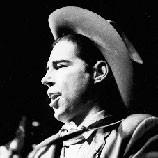
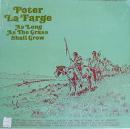


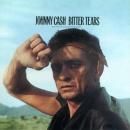
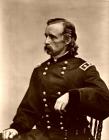
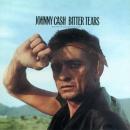
Lyrics and Music by Peter LaFarge
Testo e musica di Peter LaFarge
Interpretata anche da Johnny Cash
Il resoconto completo della storia di Ira Hayes si trova sull'importante sito Bob Dylan's Roots (La medesima pagina contiene una bella foto di Ira Hayes, e un estratto della versione della ballata eseguita da Bob Dylan nel 1970, legalmente scaricabile):
"Many Americans will have heard of Ira Hayes, the Pima Indian who with his five mates in the Marine Corps raised the United States flag on Mount Suribachi on the island of Iwo Jima. He was in the photograph, now world-famous, taken by Joe Rosenthal. But Ira Hayes died of acute alcoholism in a cotton field on the Pima reservation on a night in January 1955. He lay all night on the cold ground and death was attributed to "exposure." What had happened in the ten years intervening since the dramatic moment on Mount Suribachi?
On November 12, 1953, the Arizona Republic, the Phoenix morning newspaper, reported that Hayes spent the previous night in jail on a drunk-and-disorderly charge. The reporter did some digging in the files, and found that this was the forty-second occasion that Hayes had been arrested on such a charge. There would be still other arrests between November, 1953, and January, 1955.
He had served throughout the South Pacific, fighting at Vella Lavella and Bougainville before coming up to Iwo Jima, where he served for thirty-six days and came out unwounded. After the flag-raising incident he and two of his buddies were brought back to the United States to travel extensively in support of the seventh war loan. One of these buddies reported that Hayes refused to be leader of a platoon because, as he explained, "I'd have to tell other men to go and get killed, and I'd rather do it myself." He was reluctant to return home, but he was given no choice. That started a round of speaking engagements, parades, ticker tape -- and people offering hospitality. The hospitality, unfortunately, invariably included free liquor, and Ira drank greedily. It was the quickest way to blur the painful, heedless publicity to which he was subjected.
After his discharge he went home to Arizona, in the district called Bapchule. After the excitement of war and the hectic round of living which he had just experienced, Hayes' Indian home was not a place in which he could settle down at once. His was no longer a self-sufficient family, such as Hayes might have known in his own childhood, which certainly his ancestors had known before him. Without adequate water to grow crops, with landholdings reduced beyond any hope of economic livelihood even if there had been water, it was not a place for a returning warrior to rest and mend. Too many other mouths depended on the food he would eat.
With the help of the relocation program of the Bureau of Indian Affairs, he went to Chicago and found employment with the International Harvester Company. For a while things went well with him, then he began drinking again. He was picked up on Skid Row in Chicago, dirty and shoeless, and sent to jail. The Chicago Sun-Times discovered who he was, got him out of jail, and raised a fund for his rehabilitation. A job was secured for him in Los Angeles, where it was hoped that he might make a fresh start. Many organizations, including church groups, helped out.
But the family home still did not have the answer. Across the road and across the fence which marks the Pima reservation, water runs in irrigation ditches. The desert is green with cotton, barley, wheat, alfalfa, and citrus fruits, pasturage for sheep and cattle. But the water and the green fields are on the white man's side of the reservation fence.
He tried once, in 1950, to plead the case of his people before government officials in Washington. He asked "for freedom for the Pima Indians. They want to manage their own affairs, and cease being wards of federal government."
But what he was asking had become infinitely complicated. It involved acts of Congress, court decrees, a landowners' agreement, operation and maintenance requirements. So complicated had it become that the lawyers and the engineers and the administrators hired by the government had succeeded only in reducing by half the acreage which the Pima Indians, in their simple way, had cultivated, on which they had grown surpluses of grain to sell to hungry white men.
Ira Hayes, coming back home, looked at the mud-and-wattle house, the ramada standing to one side, a few poor outbuildings, and knew that he would not find the answer there. He found it on the cold ground in a cotton field."
Harold E. Fey & D'Arcy McNickle, Indians & Other Americans (revised edition),
New York, 1970, pp. 45-48
The Senecas (As Long As The Grass Shall Grow) - Apache Tears - Custer - The Talking Leaves - The Ballad Of Ira Hayes - Drums - White Girl - The Vanishing Race